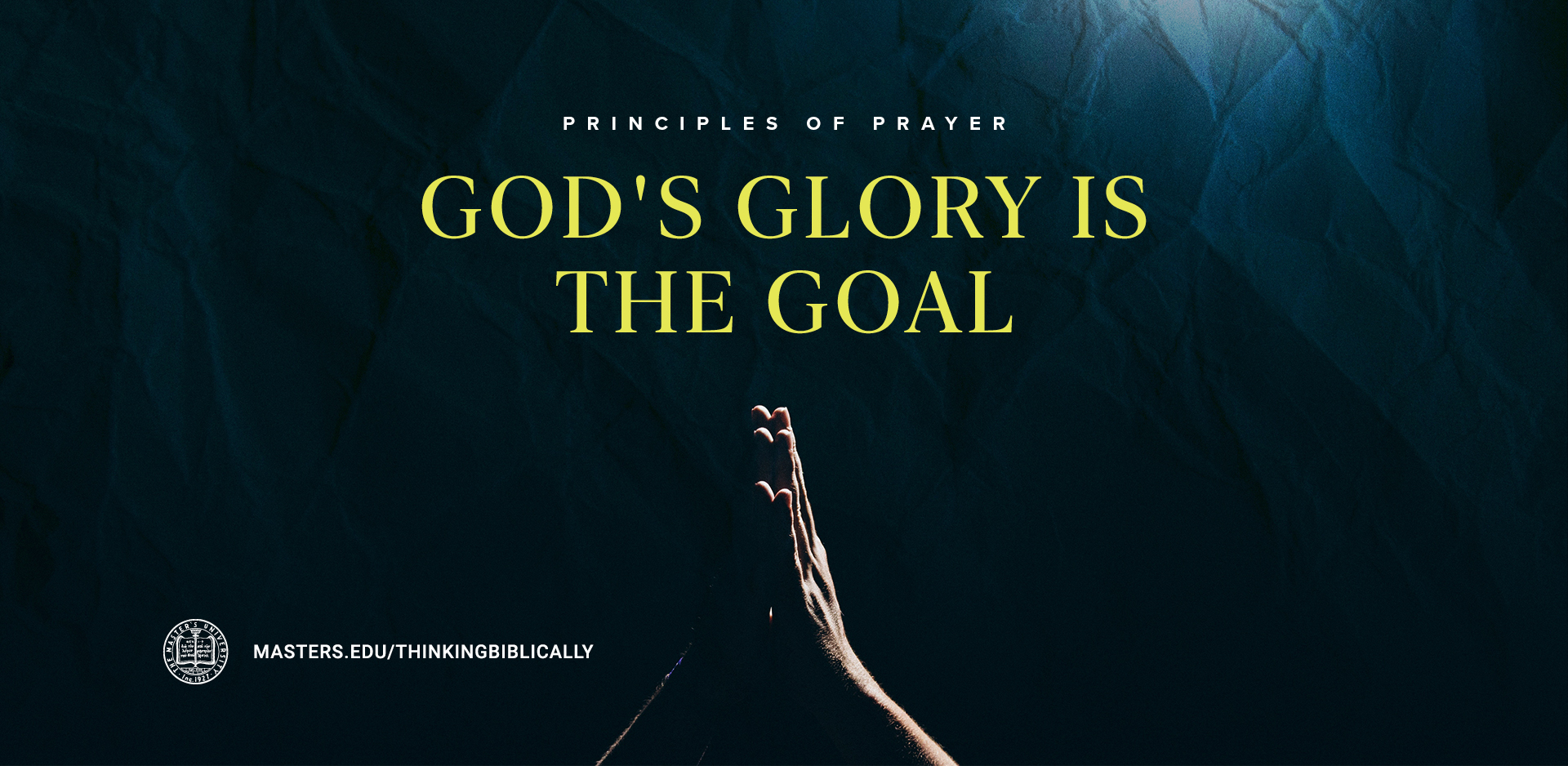
In my mind, the most horrible aspect of sin is the fact that it brings reproach upon the name of God. As a human and as a Christian, I represent God — and every time I sin, I do harm to His reputation on earth. The most important person impacted by my sin is not me, but God.
In the same way, the most important person involved in my prayers is the Lord, not myself. We see this modeled very clearly at the end of Daniel’s prayer:
O Lord, in accordance with all Your righteous acts, let now Your anger and Your wrath turn away from Your city Jerusalem, Your holy mountain; for because of our sins and the iniquities of our fathers, Jerusalem and Your people have become a reproach to all those around us … For Your sake, O Lord, let Your face shine on Your desolate sanctuary.
O my God, incline Your ear and hear! Open Your eyes and see our desolations and the city which is called by Your name; for we are not presenting our supplications before You on account of any merits of our own, but on account of Your great compassion.
O Lord, hear! O Lord, forgive! O Lord, listen and take action! For Your own sake, O my God, do not delay, because Your city and Your people are called by Your name. (Daniel 9:16-19)
Repeated multiple times throughout this section is Daniel’s clarification, “For Your sake, O Lord.” Daniel understands that true prayer appeals to God’s desire to glorify His own name.
Part of the reason this is true is because we do not, in and of ourselves, warrant God’s mercy. Daniel could not say, “Lord, save us, for our sake and because of our worthiness!” Israel was not worthy of God’s help. Israel had no goodness to motivate God’s intervention.
However, Israel did have something else. They had the fact that God chose them as His special nation — as the people He would glorify His name through. And so Daniel says, “We are called by Your name; help us, because Your reputation is at stake.”
You see, the captivity of Judah and the sorry state of Jerusalem made the nations think that Judah’s God was either powerless or fickle. Even though this judgment was just punishment for sin, it still looked to outsiders as though Yahweh was a failure. Daniel could not stand for this, and He knew that God wouldn’t either.
We live in a day where most prayer is a far cry from this standard of maturity. People pray only for their own ends. But the sort of God-centered prayer offered by Daniel shows up all over Scripture. Look at just one example from Psalms:
But You, O Lord, abide forever,
And Your name to all generations.
You will arise and have compassion on Zion;
For it is time to be gracious to her,
For the appointed time has come.
Surely Your servants find pleasure in her stones
And feel pity for her dust.
So the nations will fear the name of the Lord
And all the kings of the earth Your glory.
For the Lord has built up Zion;
He has appeared in His glory. (Psalm 102:12-16)
The Psalmist’s logic goes like this: “God, when You come back and rebuild Your city, the nations will know that You are great.”
Do you pray like that? Do you pray that God would do certain things in your life and in the lives of others so that He might be glorified? We should, because Jesus says this is what prayer is for. In John 14:13 He says to His disciples, “Whatever you ask in My name, that will I do, so that the Father may be glorified in the Son.”
This is why Daniel prays. This is how we also should learn to pray.
So, what have we learned? We have seen that true prayer is generated by the Word of God, characterized by fervency, realized in self-denial, identified with others, strengthened in confession, dependent on God’s character, and consummated in God’s glory.
This is the sort of prayer God loves, and this is the sort of prayer that gets answered.

The Master’s University and Seminary admit students of any race, color, national and ethnic origin to all the rights, privileges, programs, and activities generally accorded or made available to students at the school. It does not discriminate on the basis of race, color, national and ethnic origin in the administration of its educational policies, admissions policies, scholarship and loan programs, and athletic and other school-administered programs.
21726 Placerita Canyon Road
Santa Clarita, CA 91321
1-800-568-6248
© 2025 The Master’s University Privacy Policy Copyright Info
| Cookie | Duration | Description |
|---|---|---|
| cookielawinfo-checkbox-analytics | 11 months | This cookie is set by GDPR Cookie Consent plugin. The cookie is used to store the user consent for the cookies in the category "Analytics". |
| cookielawinfo-checkbox-functional | 11 months | The cookie is set by GDPR cookie consent to record the user consent for the cookies in the category "Functional". |
| cookielawinfo-checkbox-necessary | 11 months | This cookie is set by GDPR Cookie Consent plugin. The cookies is used to store the user consent for the cookies in the category "Necessary". |
| cookielawinfo-checkbox-others | 11 months | This cookie is set by GDPR Cookie Consent plugin. The cookie is used to store the user consent for the cookies in the category "Other. |
| cookielawinfo-checkbox-performance | 11 months | This cookie is set by GDPR Cookie Consent plugin. The cookie is used to store the user consent for the cookies in the category "Performance". |
| viewed_cookie_policy | 11 months | The cookie is set by the GDPR Cookie Consent plugin and is used to store whether or not user has consented to the use of cookies. It does not store any personal data. |